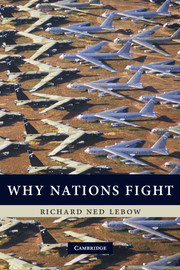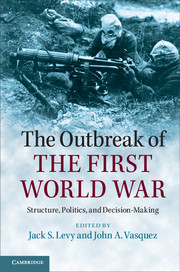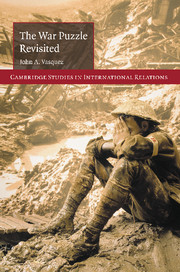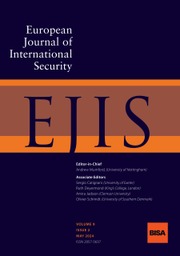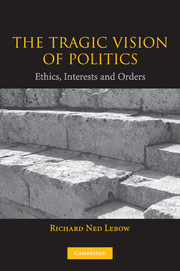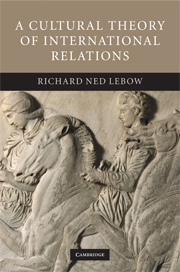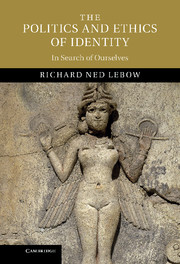Why Nations Fight
Four generic motives have historically led states to initiate war: fear, interest, standing, and revenge. Using an original data set, Richard Ned Lebow examines the distribution of wars across three and a half centuries and argues that, contrary to conventional wisdom, only a minority of these were motivated by security or material interest. Instead, the majority are the result of a quest for standing, and for revenge - an attempt to get even with states who had previously made successful territorial grabs. Lebow maintains that today none of these motives are effectively served by war - it is increasingly counterproductive - and that there is growing recognition of this political reality. His analysis allows for more fine-grained and persuasive forecasts about the future of war as well as highlighting areas of uncertainty.
- Advances a novel approach to the causes of war and uses this to make forecasts about the future of war
- A unique data set, compiled by the author, underlies the book's analysis
- Includes a chapter-length discussion and critical review of existing theories and approaches to the study of war (realist, power transition, Democratic Peace, Marxist and rationalist)
Reviews & endorsements
“Richard Ned Lebow makes an extremely successful attempt at broaching lucidly the main theories of war, and offers a most fascinating and convincing way of bringing them up to date. He strongly renews a classical field of IR studies by considering the new conflicts in a very relevant manner.”
Bertrand Badie, Professor, Sciences Po, Paris
“In Why Nations Fight, Richard Ned Lebow makes a welcome contribution to the study of war by bringing motives and reasons (rather than just goals and intentions) back in. Extending his theory of human motives, he develops a typology of wars and establishes a series of propositions about war-initiation which he evaluates on a new historical data set. Last, but not least, he speculates on the future of wars by extrapolating from historical shifts in both the salience of motives and the changing understanding actors have of them.”
Stefano Guzzini, Senior Researcher, Danish Institute for International Studies
“In Why Nations Fight Richard Ned Lebow continues the path-breaking attempt that he started in A Cultural Theory of International Relations to re-orient the way that we study international relations. In this new book he delivers on his promise to draw on systematic data to assess his theoretical analysis of war and, as a consequence, is able to reach some fascinating and broadly optimistic conclusions. Both his theory and evidence indicates that although one of the major reasons that states have gone to war in the past is to raise their international esteem, because of some complex social and cultural changes, war is now much less likely to achieve this goal. It follows that states are becoming much less motivated to go to war. This is a stimulating and challenging attack on orthodox thinking in the field.”
Richard Little, University of Bristol
Product details
October 2010Hardback
9780521192835
308 pages
229 × 152 × 21 mm
0.62kg
11 b/w illus. 2 tables
Available
Table of Contents
- Part I. Introduction:
- 1. Introduction
- 2. Theories of war
- Part II. War in the Past:
- 3. Theory and propositions
- 4. Data set and findings
- Part III. War in the Future:
- 5. Interest and security
- 6. Standing and revenge
- Part IV. Conclusion:
- 7. Conclusion
- Appendix: data set.

